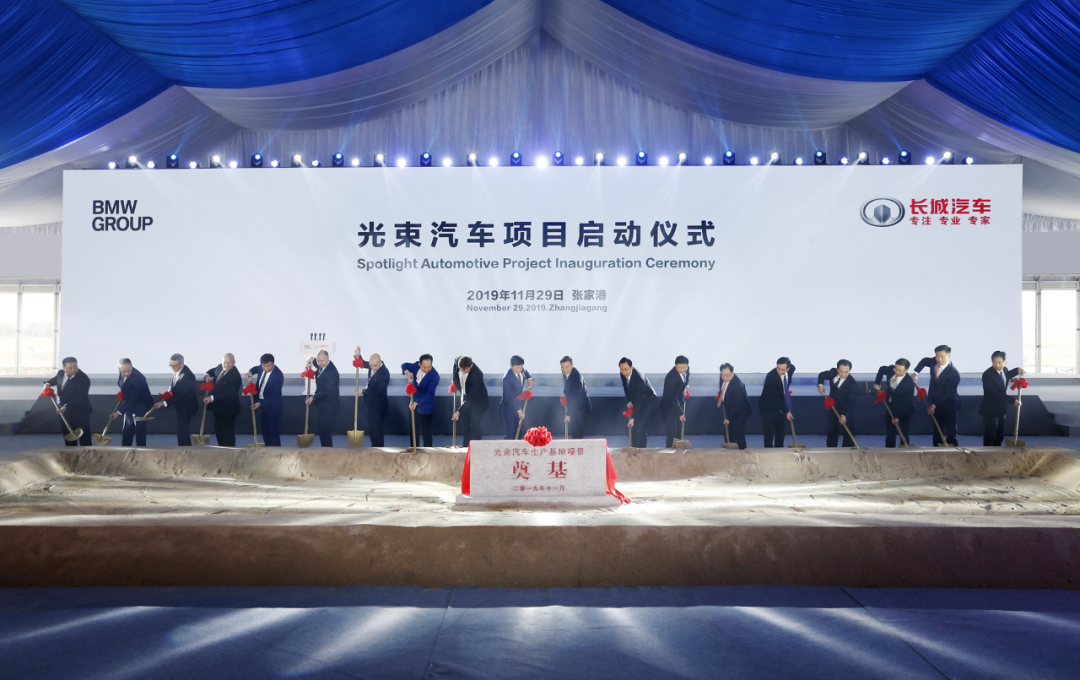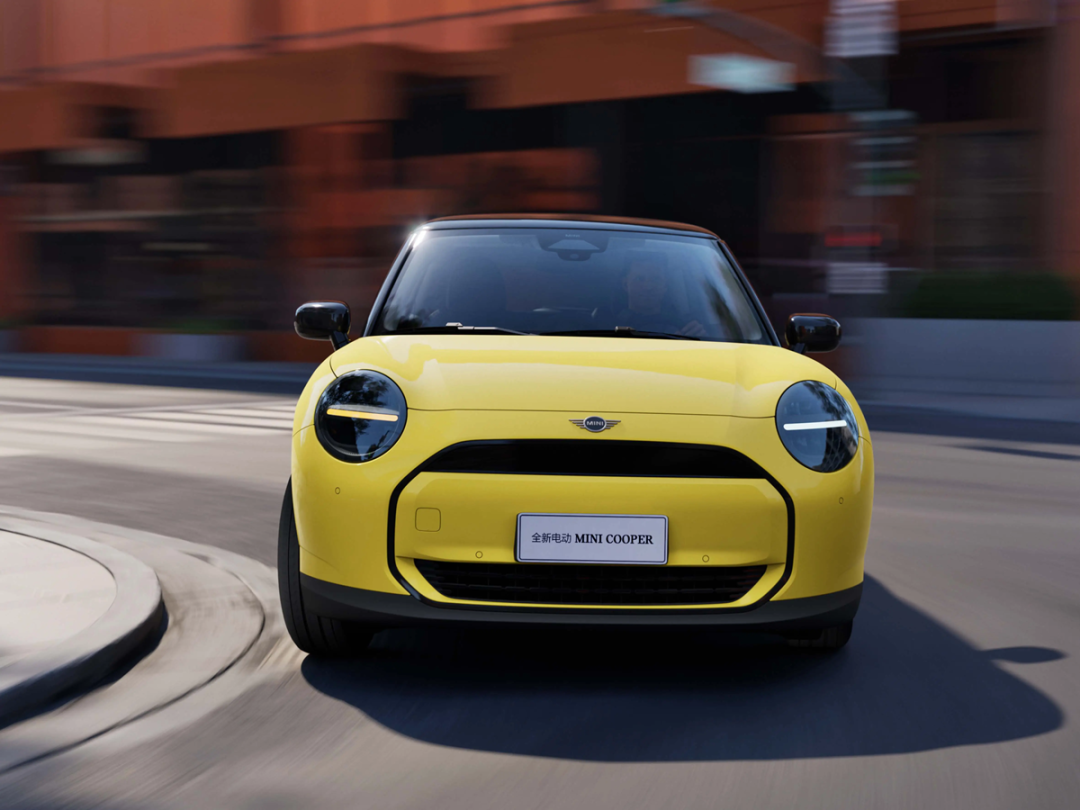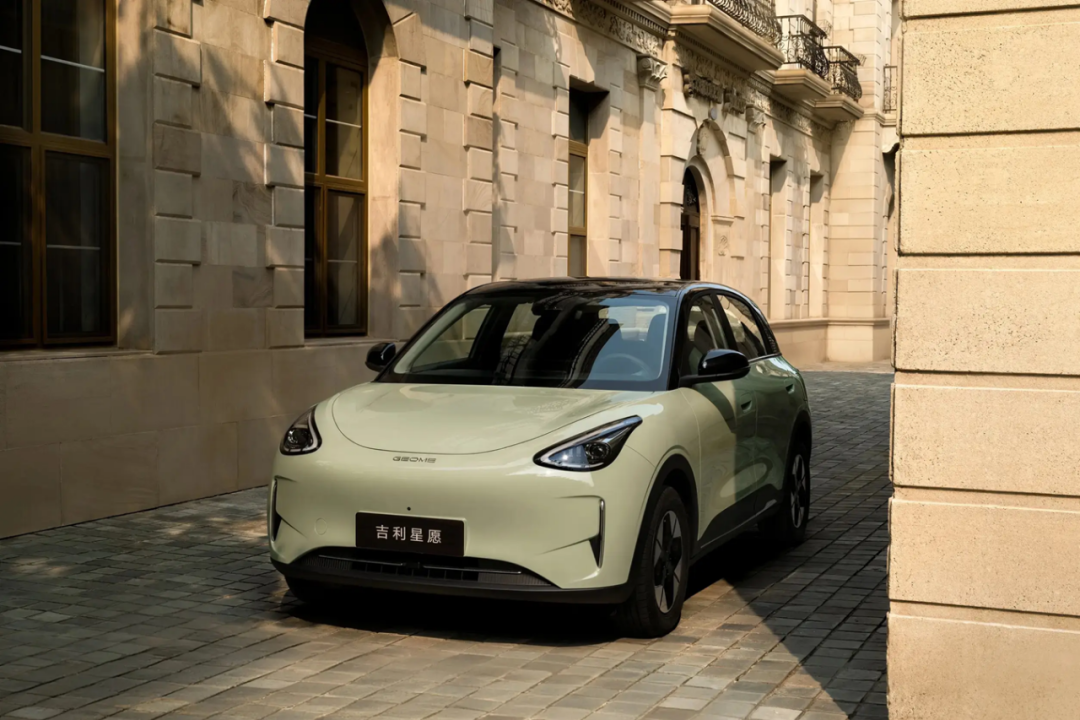Light Beam Auto: A Victim of Timing
![]() 12/30 2024
12/30 2024
![]() 509
509
Had Light Beam Auto arrived a decade earlier or later, its fate might have been vastly different.
Text
Once a serene expanse where fishing boats serenaded the evening light, the waters now shimmer with the glow of street lamps, reflecting the bustle of modernity. The ancient waterway, once a tranquil haven, now accommodates the passage of ten-thousand-ton giants, stirring memories of a bygone era.
At the 2024 Guangzhou Auto Show, no new internet celebrities emerged as everyone quietly pressed forward. Neither Chinese nor foreign automakers wanted to be left behind by the times.
Yet, for some automakers, the transition from darlings of their era to forgotten relics was inevitable. Six years ago, in the summer, a contract was signed, and a new joint venture automaker, Light Beam Auto, was born on the North China Plain.

As the youngest joint venture automaker in China's automotive industry, Light Beam Auto is also the most overlooked.
Light Beam Auto: A Tale of Dual Tragedy
On November 25, a former Great Wall Motors employee revealed that the company had maliciously laid off employees through non-consensual job transfers and salary reductions.
Subsequently, an employee from Light Beam Auto, a joint venture between Great Wall Motors and BMW, disclosed that the company's HR had asked them to resign due to "multiple instances of clocking in for field work when not on business trips, as recorded in their attendance." However, curiously, according to the employee who was asked to "resign," half of the seven instances occurred during the 2023 fiscal year, and the attendance anomalies were due to accidental misclicks.
When this employee renewed their employment contract with Light Beam Auto in March of this year, they explained the attendance issues, and both parties signed the contract normally. During the period of attendance anomalies, wages were paid as usual.
So, the question arises: why was this employee "settled accounts with" after the fact?
Let's consider another crucial piece of information. The employee who was asked to "resign" was from Light Beam Auto's Procurement Department. The fact that layoffs are targeting the Procurement Department indicates that Light Beam Auto needs to "tighten its belt and make ends meet."
While disclosing this information, the employee also provided Light Beam Auto's production plans for its two major models, the EC11 and EC12 (electric MINI ACEMAN and electric MINI COOPER).
According to this plan, Light Beam Auto's production volume will gradually decline in the last two months of 2024; in 2025, the company's production volume will also show fluctuations.
While this production plan may not seem problematic on the surface, when combined with recent sales figures, it becomes evident that Light Beam Auto is facing considerable difficulties.
According to insurance data, the electric MINI produced by Light Beam Auto has not sold well since its launch.
The electric MINI COOPER, launched on July 6, sold 578, 331, and 197 units in July, August, and September, respectively; the electric MINI ACEMAN, launched on August 27, sold only 179 units in September.
Undoubtedly, these figures fall short of Light Beam Auto's expectations. The factory's enormous operating costs and disproportionate market performance explain why Light Beam Auto needs to lay off employees.
In fact, the crisis Light Beam Auto faces today was sown long before its inception.
The Promising Beginnings of Light Beam
Light Beam Auto was founded in the summer of 2018, indeed a beautiful summer.
Like most entrepreneurs starting a business with high hopes, Great Wall Motors and BMW also had grand visions for Light Beam's future. They envisioned Light Beam Auto as one of the highest-quality, most innovative, and influential examples of Sino-foreign cooperation in China's automotive history.
Both Wei Jianjun, full of ambition, and Klaus Fröhlich, BMW Group's Board Member for Development, believed that the thriving Great Wall Motors and BMW Group would accomplish great things together.
In their joint venture plans, both Great Wall Motors and BMW showed great sincerity, each holding 50% of Light Beam Auto's shares and adopting a joint venture model without joint operation, hoping to open up new possibilities.
Great Wall Motors hoped to enhance its influence through BMW's brand power, giving it a stronger hand in the upcoming era of electrification; BMW, on the other hand, hoped to leverage Great Wall Motors' strength in new energy technology to boost its own capabilities.
In fact, this cooperation logic is quite rigorous and can be considered flawless.
At the launch of the Light Beam Auto joint venture project, guests and media were filled with expectations. Everyone wanted to see what sparks would fly when Great Wall Motors, then the leader among China's independent automakers, teamed up with BMW, a global luxury brand.
After initiating the joint venture project, Great Wall Motors and BMW, still in their honeymoon phase, actively pushed forward.
One month after establishing their cooperation strategy, Great Wall Motors and BMW signed an investment agreement with the Zhangjiagang Municipal People's Government, and Light Beam Auto's headquarters was established in Zhangjiagang. In 2019, Light Beam Auto began construction of its factory in Zhangjiagang, with both Great Wall Motors and BMW taking part in the groundbreaking ceremony.
As the Light Beam Auto joint venture project was under construction, China's new energy automotive industry officially entered a period of rapid development. New energy brands such as Li Auto, IM Motors, Voyah, and HiPhi emerged, and China became a hotbed for the new energy automotive industry.
With a favorable market environment and cooperation between strong players, almost everyone was optimistic about Light Beam Auto. It could be said that Light Beam Auto, born with a silver spoon in its mouth, was destined for success from the outset.
But if that were truly the case, how would the story unfold? How would history be written?
"If there are no accidents, there will be accidents."
Shareholders with Differing Intentions, Light Beam Forgotten
After the Light Beam Auto project ceremony was launched on November 29, 2019, this joint venture between Great Wall Motors and BMW seemed to be caught in the tide of the times. When everyone was focusing on NIO, XPeng, Li Auto, and HiPhi, which were breaking the pricing rules for independent vehicles, who knew that there was a car manufacturer named "Light Beam" quietly building in Zhangjiagang?
Perhaps starting from 2020, people's memories gradually worsened. Everyone only focused on current hot topics, always overlooking past events.
After the completion of the Light Beam Auto factory, its production timeline was repeatedly delayed. It was not until the end of 2023 that Light Beam Auto announced that it had obtained independent production qualifications; in the summer of 2024, the electric MINI, a collaboration between Great Wall Motors and BMW, was officially launched.

From the establishment of the joint venture to the launch of new products, Light Beam Auto took almost six years. During this time, many automakers have gone through the entire "life cycle" from start-up to prosperity to obscurity.
Can the late-arriving Light Beam Auto still steady the ship?
Regarding the "six lost years" of Light Beam Auto, there are various speculations from the outside world.
Some industry insiders have commented that during the development of Light Beam Auto, Great Wall Motors, as one of the partners, only played the role of "providing money but not caring how you grow." Under Great Wall Motors' "laissez-faire" approach, Light Beam Auto did not acquire advanced technology or sufficient brand-building efforts. Compared to brands under Great Wall Motors, Light Beam was not treated like a "favorite son."
On the contrary, BMW actively promoted the Light Beam project.
Over the past few years, BMW has not only provided the important brand resource channel of MINI to Light Beam. At the same time, BMW Group itself has also been actively promoting new energy reforms, "nurturing" Light Beam through various dimensions such as technology and market.
However, BMW's "wishful thinking" investment is actually difficult to make Light Beam Auto successful in China's new energy market.
As an "outsider," BMW seems not to understand what Chinese consumers truly need. The electric MINI series it created has shown weak momentum after its launch. The root of all this is that "foreigners don't understand the Chinese market."
As we all know, Great Wall Motors has always been skeptical about the development of new energy and has therefore concentrated a large amount of resources on the research and development of off-road vehicles, pickup trucks, and fuel power technology.
As for Great Wall Motors' own new energy brands, such as Ora and Mechadragon, their development has been full of twists and turns. The Mechadragon brand has almost been abandoned by Great Wall Motors, and Ora's average monthly sales in recent months have barely exceeded 5,000 units, with slow product and technology updates.
With its own new energy brands barely taken care of, can Great Wall Motors quickly push forward with its joint venture projects? Obviously, it's difficult.
According to the initial plan, after its establishment and commissioning, Light Beam Auto was to undertake electric vehicle research and development work for both Great Wall Motors and BMW. In addition to the electric MINI, new products under Great Wall Motors were also to be researched and produced here. But so far, Light Beam Auto has not shown any new movements on the product side.
Great Wall Motors' sluggish development in the new energy field and BMW's "unfamiliarity" with China's new energy market make it difficult for the two to complement each other.
Where is Light Beam Auto's Future?
Entering 2024, the automotive industry is ostensibly engaged in a "price war" and "resource war." But in reality, behind the fierce competition lies the fact that China's new energy automotive market has entered a knockout stage.
Light Beam Auto is surrounded by competitors. Currently, Light Beam Auto only has the electric MINI, including the electric MINI COOPER and electric MINI ACEMAN models, both positioned as premium pure electric compact cars.
Based on the current market conditions, Light Beam Auto's situation is not optimistic.
In the fuel era, the BMW MINI brand had almost no competitors. Its imported status, exquisite design, and go-kart-like handling made the MINI a "chick magnet," enjoying a moment of unparalleled popularity. But in the new energy era, the electric MINI wants to emerge as an old brand, only to find that its competitors hold even bigger cards.
First, the market for high-priced premium compact cars represented by MINI has shown signs of weakness.
From 2019 to the present, MINI sales in China have been declining. Data shows that BMW MINI sales in China in the first three quarters of the year have declined significantly, with deliveries down 29.8% year-on-year. In 2023, MINI sales were also poor, with only 18,200 units sold throughout the year...
From a market perspective, in the current context of insufficient domestic demand, high-priced premium compact cars have become difficult to break through the circle. On the contrary, affordable pure electric compact cars such as the Wuling Bingo, BYD Dolphin, and Geely Xingyue are leading the market, with their market share continuously rising.

Speaking of another traditional high-end premium compact car brand, Smart, it actually underwent a transformation in Chinese-foreign cooperation in 2019, just like Light Beam MINI. But their fates are vastly different.
Geely and Mercedes-Benz cooperated to establish Smart Automobile Co., Ltd. (Smart) at the end of 2019. With the rapid advancement of both parties, Geely brought a lot of new technologies to Smart, including the HAO architecture used by Zeekr and Lynk & Co.
Relying on speed and the confidence of both shareholders, Smart has developed rapidly. In 2023 alone, Smart sold over 67,000 units cumulatively.
Fortunately, MINI seems to have realized the problem. After the launch of new models by Light Beam Auto, faced with poor sales, BMW MINI, which has always pursued high-end positioning, had to adjust its strategy, lowering the starting price of the electric MINI COOPER to 148,800 yuan.
Affected by the price adjustment, the market popularity and sales of the electric MINI COOPER began to improve. It can be seen that the problem with the electric MINI is essentially the same as that with electric BMWs - both misjudged market demand and placed too much faith in brand premium.
Therefore, MINI's top priority is to readjust its market positioning.
Conclusion:
Unsold inventory, price reductions, layoffs... These words, which often appear during financial crises, have all emerged in Light Beam Auto's narrative, adding much uncertainty to its future.
Ultimately, Light Beam Auto is the consequence of "impulsive consumption."
Great Wall Motors, whose heart is not in the electric field, and BMW Group, which does not understand China's new energy market, are like two lovers with completely mismatched personalities. When they first met, they may have been attracted to each other because of their talents; but over time, instead of growing fond of each other, they grew tired of each other. The hardest hit is Light Beam Auto, the "child" of this union.
Regardless, as long as Light Beam Auto can emerge from its downturn and the market continues to improve, there is still hope for its future.








